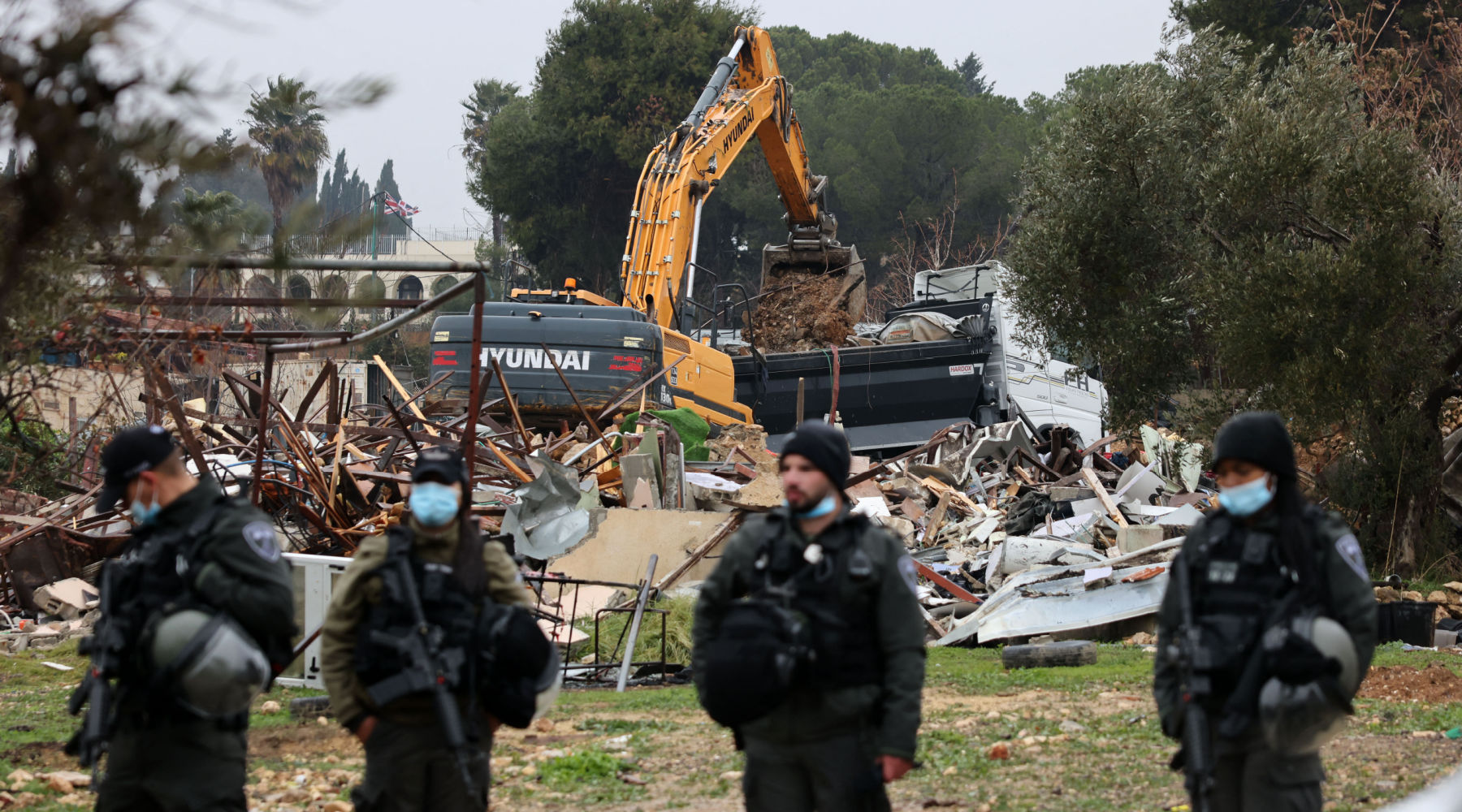A dead activist, a detained child, a demolished home. What else is new?

It was just another day when thousands took part in the funeral of Haj Suleiman al-Hathaleen in Umm al-Kheir. For Israel, his community is a nowhere, just another Palestinian locality to be erased and replaced, suffocated slowly while the nearby settlement – its homes literally begin where Umm al-Kheir’s shanties end – flourishes.
Haj Suliman was a staunch advocate for his community. He was a Palestinian someone in the face of a regime working tirelessly to render his people invisible. He was hit by a truck working in service of the Israeli police – the official version being that he was invisible to the driver. They left him there to his fate, without providing medical assistance. He died of his injuries after two weeks’ struggle between life and death.
To his parents, Amal Nakhleh is someone. He was born prematurely so they named him Amal – hope – in the hope that their son would survive. He did.
For Israel, Amal is just another Palestinian no one. The fact that he had just turned 17 and suffers from an autoimmune disease doesn’t change that. For over a year now he has been held under “administrative detention,” Israel’s whitewashed term describing the Kafkaesque routine of indefinitely detaining someone – a no one – without charge or trial. The very week Haj Suliman was buried, Amal turned 18 – while incarcerated. A few days earlier, Israel extended his non-sentence for the fourth time.
For decades, the Salhiye family called the Jerusalem neighborhood of Sheikh Jarrah home. But it wasn’t the family’s original house: in 1948, as Israel was established, the family was expelled from Ein Karem – now an artsy residential neighborhood in another part of the city. It was already a few hours into the night following the day when Haj Suliman was laid to rest. Still dark and bitterly cold when the border police and the bulldozer showed up under the cover of night, it didn’t take long before Israel – again – expelled the Salhiye family from its home. Then the bulldozer did its thing.
These fragments of Palestinian life – and death – are joined by numerous others. Just three, from a single day. So many more unfolded on that very day, and the week before, and the month preceding the year before the decade. And so on. This crushing brutality is not new. It impacts the life of each and every Palestinian. The bullet or the bulldozer, the permit denied or the prison cell extended, humiliation and dehumanization. This is apartheid. Israeli, high-tech surveillance mixed with lowbrow violence, Jewish supremacy-centered, apartheid.
Of course, Israel will deny it all. Haj Suliman? A car accident being investigated (it’s been a few weeks; the driver is yet to be questioned by the police; regardless, Israel routinely whitewashes almost all cases of killings of Palestinians by its security forces).
Amal’s prolonged incarceration without trial? Nothing for anyone to worry about, thanks to world-class Israeli judicial oversight (from military judges to High Court justices, all routinely approve this – and many other – draconian measures against Palestinians without even a semblance of due process; the “evidence” remains secret, hence by design made impossible for one to prove his innocence).
The Salhiye family? By Israeli law, they cannot reclaim their Ein Karem home, because they are Palestinian. And by Israeli law, court rulings, and distorted legal interpretations many more Palestinian families are slated to be expelled from their Jerusalem homes – to make way for Jewish settlers. The i’s have been dotted; the t’s crossed. This brutality desires to hide itself within “the rule of law.” In fact, it being so legalized – and as such, so celebrated by Israeli propaganda – only makes this system more horrific.
It was just another day in Israel’s arrogant, immoral, brutal efforts to erase Palestinian identity, life, and dignity. Yet Umm al-Kheir is a place. And Amal Nakhleh is alive, as his parents had hoped when he was born 3 months prematurely. And the Salhiye family hasn’t forgotten Ein Karem.
It was just another day. It is hard to contain the rage or to hold back the tears. How many more such days will it take?
